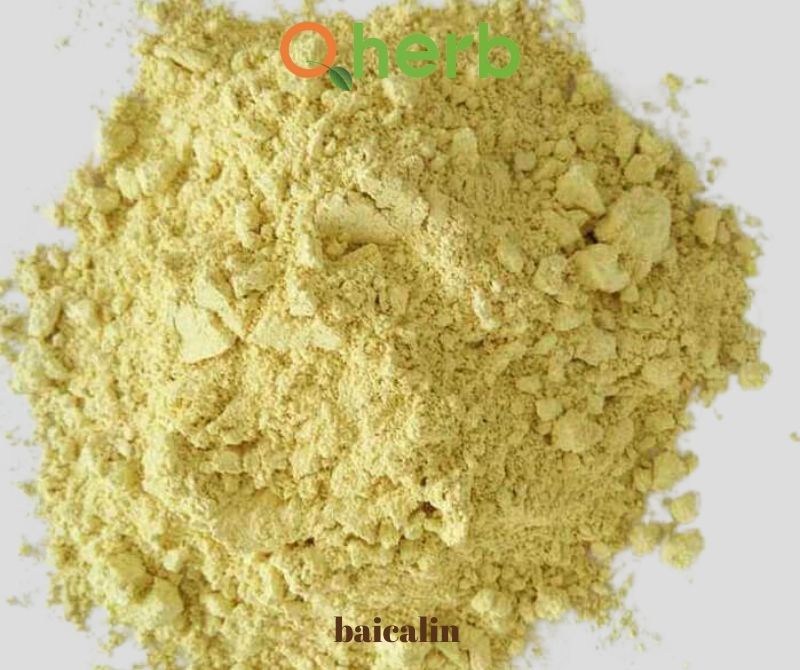A Golden herb from Chinese medicinal plant
Scutellaria baicalensis Georgi, also known as Chinese skullcap, is a well-known widely used medicinal plant. It is found in chine and in practice for more than two thousand years. The medicine prepared from its root is known as Huang-Qin. It is used as a medicine in treating dysentery, diarrhoea, hypertension, insomnia, haemorrhaging, inflammation and respiratory problems. Flavones like baicalin and Aglycones baicalein wogonin is an important bioactive compound extracted from Scutellaria Baicalensis root. These flavones and extracts have lots of pharmacological functions, including hepatoprotection, anti-cancer, antiviral and antibacterial, anticonvulsant, and antioxidant and neuroprotective effects.
Scutellaria baicalensis is a flowering plant species in the family of Lamiaceae. It is cultivated in most of the European countries. As a traditional medicine, Chinese people dry the root and use it as a medicine for more than two thousand years. It is now listed as one of the important medicine in Chinese Pharmacopoeia. Also, the dried root and leaves of Scutellaria baicalensis are basically prepared by boiling.
Clinical applications of Scutellaria baicalensis
Scutellaria baicalensis has been in practice as a medicine in most of the East Asian countries. Huang-Qin is found to be the best treatment for treating bacterial pneumonia and colds. In most of the Eastern countries, it is used as a multi-herb formulation. It is a basic ingredient for preparing Xiao chai Hutang.
The study says that the effects of Scutellaria baicalensis on hepatitis gave a greater result in treating it. 98 hepatitis patients were prescribed with Scutellaria baicalensis and followed it for 5 years of duration. The patients with hepatitis B deficiency have 78% of improvement in Liver function and patients with non-A non-B type hepatitis deficiency have serum levels reduced.
It is also effectively curing the hepatitis C deficiency patients. In an experimental study, Scutellaria baicalensis is prescribed as a common medicine for the hepatitis C patients. The patients have been studied for the duration of 7 years, where patients have normalized enzyme functions. However, normalization of a liver enzyme has been observed in only 1 patient. Five patients with common medicine have cured of liver cancer compared patients in taking Scutellaria baicalensis combination medicine.
Pharmacology of Scutellaria baicalensis
Most of the laboratory and theoretical studies have proven that Scutellaria baicalensis product is cytotoxic to the human's cancer cells in wide range, also includes prostate cancer cells, brain tumour cells and head and neck squamous cell lines. Aqueous extracts of Scutellaria baicalensis roots gives apoptosis and therefore reduce the growth of myeloma cell, by working with the expression level of BCL genes and c-my oncogene, and increasing inhibitor activity. Scutellaria baicalensis extracts are selectively toxic to some human lung cancer cells, but not to the normal human lung. Increase in Bax protein and p53 activities is responsible for these defects.
The flavones like wogonoside, baicalin and aglycones baicalein are some of the major and important bioactive in Scutellaria roots, which is a major bioactive component responsible for anti-cancer effects in it. Baicalin flavones inhibit the growth of lymphoma cells. Wogonoside has excellent anticancer effects on leukaemia cells. It significantly increases the transcription process of phospholipid scramblase 1, which is a stimulator of the cell cycle and differentiation related to genes. Baicalin and wogonin have same effects as Scutellaria baicalensis extracts work against lung cancer. The anti-cancer properties of the Scutellaria-derived flavones are mainly prescribed for their ROS scavenging capacity, prevention of viral infections and cell cycle gene expression.
Antiviral and Antibacterial activities of Scutellaria baicalensis
Among all other herb and spice extracts Scutellaria baicalensis extracts have effectively worked against Escherichia coli, Bacillus cereus, Salmonella anatum, Listeria monocytogenes, and Staphylococcus aureus. Aqueous extracts of Scutellaria baicalensis roots produce antimycotic treatment against Candida albicans, Aspergillus fumigatus, Rhodotorula rubra and Geotrichumcandidum. Baicalin a flavone, separated from Scutellaria baicalensis, has been practised as a natural antibacterial agent against the foodborne pathogens like Staphylococcus spp and Salmonella. Extracts of Scutellaria baicalensis have a property to enhance the antimicrobial activity of major antibiotics such as ceftriaxone, ciprofloxacin, penicillin G and gentamicin, against Staphylococcus aureus.
Scutellaria baicalensis produces lots of natural products such as amino acids, flavonoids, phenylethanoids, essential oils, and sterols.



 Healthier Future
Healthier Future